Burnout: the side effect of pressuring yourself to perform optimally and constantly in a fast-paced world when all your body and brain want to do is get some rest.
I’m sure you’ve heard about it or even experienced it, I am no stranger to these states of emotional, physical, and mental exhaustion caused by excessive and prolonged stress.
I’ve run into many walls thinking I can push myself a little further but the wall always wins.
Burnouts take a toll on everything, from physical, emotional, and mental health, to leaving us feeling exhausted, unmotivated, and detached.
Recognizing the signs and symptoms of burnout is crucial to your well-being, and taking steps to manage it is vital to achieving not just a work-life balance but a life balance.
In this blog post, I will share my personal experience with burnout and the journey to recovery, as well as provide practical tips for coping with burnout and finding balance.
- It All Started Here…
- Understanding Burnout
- Triggers and Risk Factors
- 8 Practical Tips On How To Overcome Burnout
- Avoiding Burnout Takes Work
- Questions You May Have
It All Started Here…
I’m a creator with a procrastination issue that loves to take over if I allow it.
Sometimes I’ll put in so much work that my workload will be free for about a month which is great but at the end of the month, I’d practically be useless.
I, like most of us, have been taught that we must put out tons and tons of effort and energy to achieve success.
This is true in a lot of situations, however, the person who passed that advice forgot to mention that we should pace ourselves and not try to do everything all at once.
Here’s how I learned this the hard way.
I was tasked with writing a lot of things, marketing plan, social media strategy, school projects, and many more.
I wanted to prove that I was up for the challenge and could handle any workload even though it felt impossible.
My sleep schedule went out the window, this is how a typical day looked for me when I had classes.
5:00 am: Wake up
5:05 am – 5:35 am: Work out
5:36 am – 6:45 am: Shower and eat breakfast
6: 46 am – 8:00 am: Commute to school
8:00 am – 10:00 am: Class 1
10:00 am – 12:00 pm: Class 2
12:00 pm – 2:00 pm: Lunch/work on project
2:00 pm – 6:00 pm: Class 3
6:00 pm – 10:00 pm: Class 4
10:00 pm – 11:30 pm: Commute home
11:45 pm – 12:00 am: Shower/dinner
12:00 am – 2:00 am: Sleep
2:00 am – 3:30 am: work on project
3:30 am – 4:59 am: Sleep
The result?
Every morning I would wake feeling more and more exhausted and overwhelmed.
I knew that lifestyle wasn’t sustainable but at least I was working out, right?
Wrong!
When the semester ended I crashed hard, my body took back all the rest that I withheld from it. I slept for days and still woke up tired.
I took every health supplement under the sun to feel energized or to feel a semblance of myself but nothing worked.
I needed to stop.
I prioritized everything besides my physical and mental health and that took a dangerous toll.
Insomnia got the best of me, I had little appetite and no desire to do the things I enjoyed.
After experiencing that a few different ways, I started to pay closer attention to how I was doing things and also paying attention to how I felt when I did them.
I then implemented the techniques below to give myself a break to rest and recharge.
Understanding Burnout
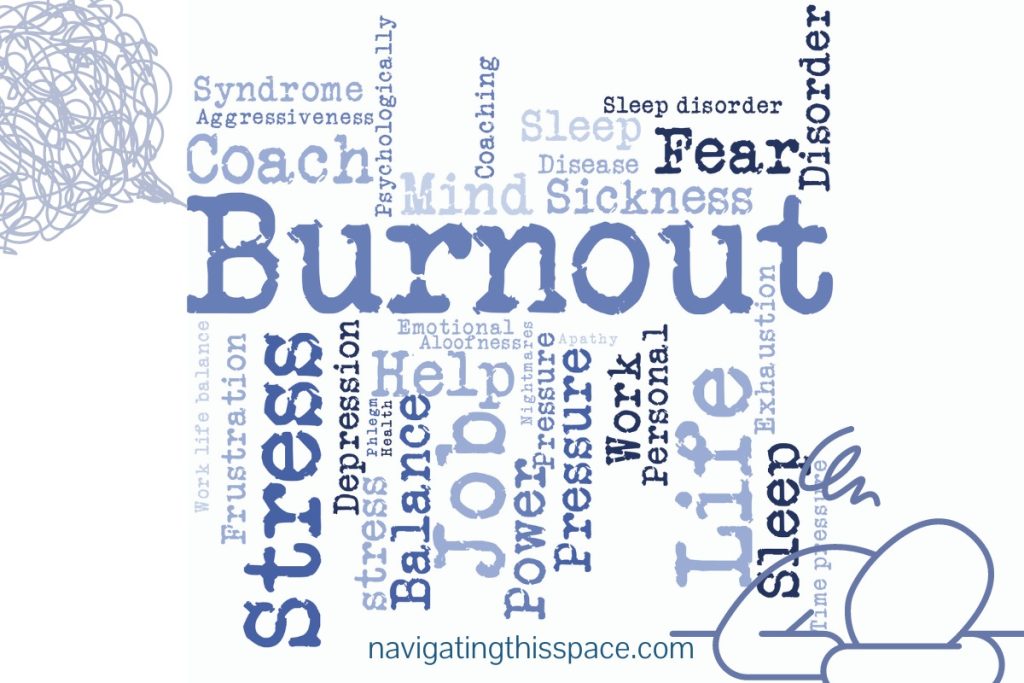
Causes of Burnout
Burnout typically results from feeling overwhelmed, emotionally drained, and unable to meet constant deadlines.
Some common causes include:
- A high workload leads to feelings of being overextended and depleted which causes job burnout
- Lack of control over your tasks or schedule
- Insufficient rewards for your efforts, such as low pay or lack of recognition
- Difficult workplace situations such as unhelpful coworkers or inadequate leadership.
- Misalignment between your values and the goals you’re chasing
Mental and Physical Exhaustion
Mental exhaustion and physical fatigue often go hand in hand with burnout.
Mental fatigue is caused by continuously using your brain’s resources, while physical exhaustion can be the result of inadequate sleep, poor diet, or lack of physical activity.
As you can tell from my story, I was ticking all the boxes without knowing I was heading down a dangerous path.
I was experiencing emotional exhaustion which led to physical exhaustion and burnout which led back to emotional exhaustion and the wheel kept spinning round and round with no end in sight.
That path can lead to symptoms like:
- Difficulty focusing, remembering, or making decisions
- Feeling tired constantly even after getting enough sleep.
- Being more prone to getting sick or injured.
- Using stimulants such as caffeine to remain awake and attentive.
Triggers and Risk Factors
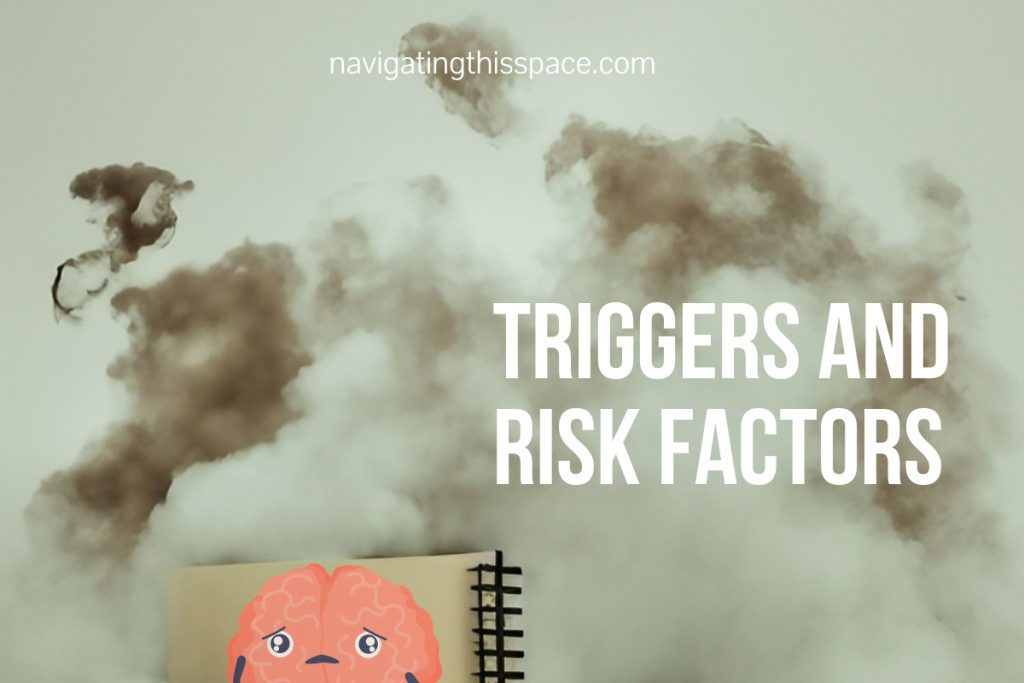
Sometimes, it is difficult to pinpoint what is causing your burnout.
However, recognizing the triggers and risk factors can help you understand and address them before they become a major issue.
Below are some common factors that can contribute to burnout.
Work-Related Triggers
- High-pressure environment: If you work in an industry known for high pressure (healthcare, finance, social media, or tech), you may be at risk of burnout due to the potential for increased stress.
- Heavy workload: Consistently working long hours or struggling to balance multiple responsibilities can and will wear you all the way down.
- Lack of control: Feeling like you have no control over your life – such as the inability to make decisions – is a contributing factor to feeling burnout.
Relationship Triggers
- Emotional strain: Managing relationships, professional or personal, can be emotionally exhausting.
- Conflicts: Unresolved conflicts within your relationships increase your mental fatigue.
- Lack of support: We are social creatures by design and if you’re feeling overwhelmed, it’s essential to have people to confide in and lean on for support to take some of the edge off. If you’re lacking this support network, you could be more susceptible to a major burnout.
Personal and Lifestyle Factors
- Social isolation: When you’re isolated from others, you may feel lonely, disconnected, and unsupported. This can lead to feelings of stress, anxiety, and depression. The cocktail that accompanies burnouts.
- Poor work-life balance: If your work consumes most of your time, you might have trouble maintaining a healthy work balance and disconnecting from your job.
- Unrealistic expectations: Setting high expectations for yourself in various aspects of your life can lead to feelings of disappointment and failure. I’m guilty of always doing this to myself. I’ll start with an elaborate plan but from the knowledge I’ve gained about burnouts, I’ll simplify a ton before production begins.
Warning Signs
- Resentfulness: Feeling bitter and resentful about your job or the people you work with is a definite telltale sign of burnout.
- Loss of motivation: A major obvious factor here. When you no longer feel motivated to do work, it’s time to stop and reassess.
- Detachment: Feeling numb and disconnected from your job, life, or both can be a sign of being burnt out.
Now that you understand how you’re triggering your burnout sessions and the signs to look out for, let’s look at what you can do to prevent it.
8 Practical Tips On How To Overcome Burnout
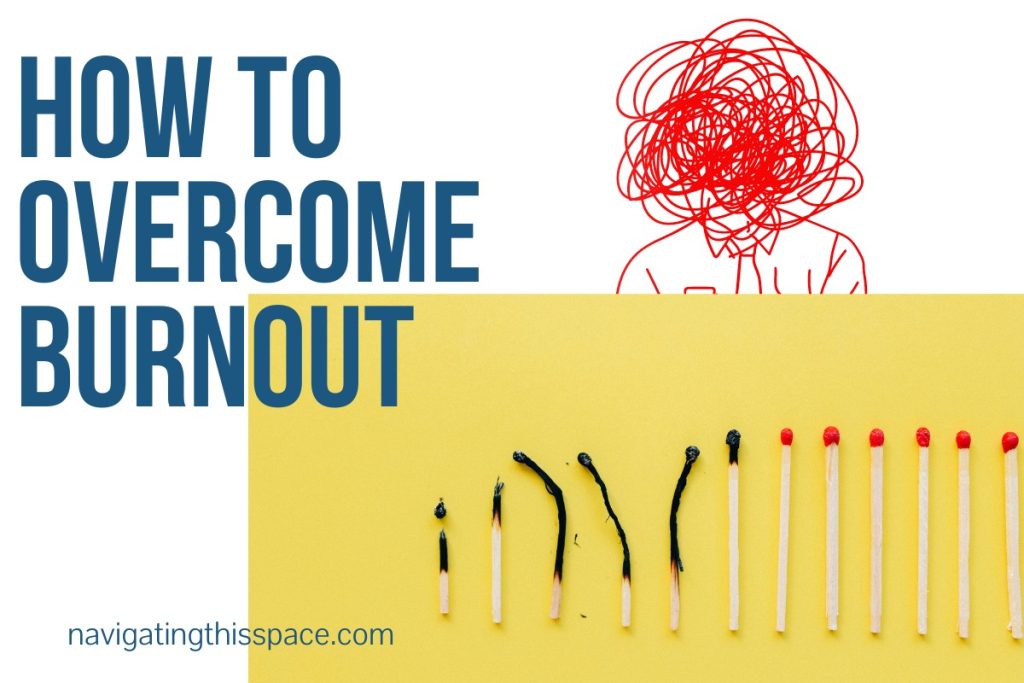
1. Recognize the Signs and Symptoms
The best way to avoid burnout is to identify your warning signs before they become too severe.
Some of these warning signs include:
- Mental fatigue and lack of concentration
- Irritability, frustration, or increased sensitivity
- Frequent headaches or other physical discomforts
- A decline in productivity
- Feeling emotionally numb or detached from your project/job
- Loss of motivation, passion, and excitement for work
Remember, the sooner you identify these warning signs, the better prepared you’ll be to take back control instead of spiraling into burnout.
It’s important to be honest with yourself and acknowledge when you’re starting to not feel like yourself.
It is important to pause and think about your thoughts and actions and see if you are experiencing any of these symptoms.
Once you’ve identified the signs, the next step is to take action to manage your burnout.
2. Prioritize Self-Care
One of the most effective ways to manage burnout is to switch your focus from producing like a robot to taking care of yourself.
Self-care can take many forms, such as:
- getting enough sleep
- engaging in physical activities
- eating a balanced diet
- avoiding alcohol or drugs
- doing absolutely nothing for a change
Find and do the activities that bring you joy and help you relax, it can be the major difference in recharging your batteries or obliterating them.
3. Practice Meditation and Mindfulness
Taking the time to quiet your mind and focus on the present moment can help reduce the feelings of anxiety and overwhelm that comes with burnout.
Meditation has been one of the constant factors in my life when it comes to dealing with burnouts.
It’s a great way to ground yourself and decrease your stress levels, allowing you to move forward with more clarity and focus.
Whenever my life gets too hectic to sit still for 20 minutes, I know something has to change because that’s my indication of the start of a downward spiral.
4. Don’t Forget to Exercise
Physical health is also essential in recovering from burnout.
Exercise helps!
When your body is in motion, endorphins are released which help to reduce stress and depression.
Plus, regular exercise can provide a much-needed distraction from your issues and give you a different perspective on life.
Exercising doesn’t have to be an intense activity, it can simply be a walk outside or around the block.
The point is to get moving to relieve stress which is a common symptom of burnout.
5. Eat Healthy Foods
Food is fuel for the body.
You wouldn’t put water in the gas tank of your car and expect it to run optimally, so why are you putting junk food in your body and expecting it to operate at its best?
Eating healthy, whole, nourishing foods will provide you with the energy you need to tackle your day.
Plus, a healthy diet can help balance your hormones which plays a very important part in your physical and emotional health.
6. Identify Your Stress Triggers
We’re all different and certain things that may trigger my stress won’t trigger you so it’s important to identify what sets you off.
Once you figure out the things that trigger you, it will be much easier to manage your responses and take steps to prevent those triggers from occurring in the first place.
7. Delegate Tasks
Set healthy boundaries between your work and personal life. If you know from experience that editing on video will take you three days to complete and you have the means to hire an editor, hire the editor.
Your stress levels and workload will be drastically reduced.
Delegating tasks will free up your time and energy so that you can focus on the things you enjoy doing.
8. Taking Breaks and Time Off
You are not a robot, I am not a robot.
We have emotions and a very limited supply of energy. When we refuse to replenish our energies we will become shells of ourselves.
It’s important to make sure you’re taking regular breaks and time off, even if it’s just one day a week to prioritize doing nothing.
This will allow you to refresh and regain your energy so that you can continue with passion and purpose.
Avoiding Burnout Takes Work
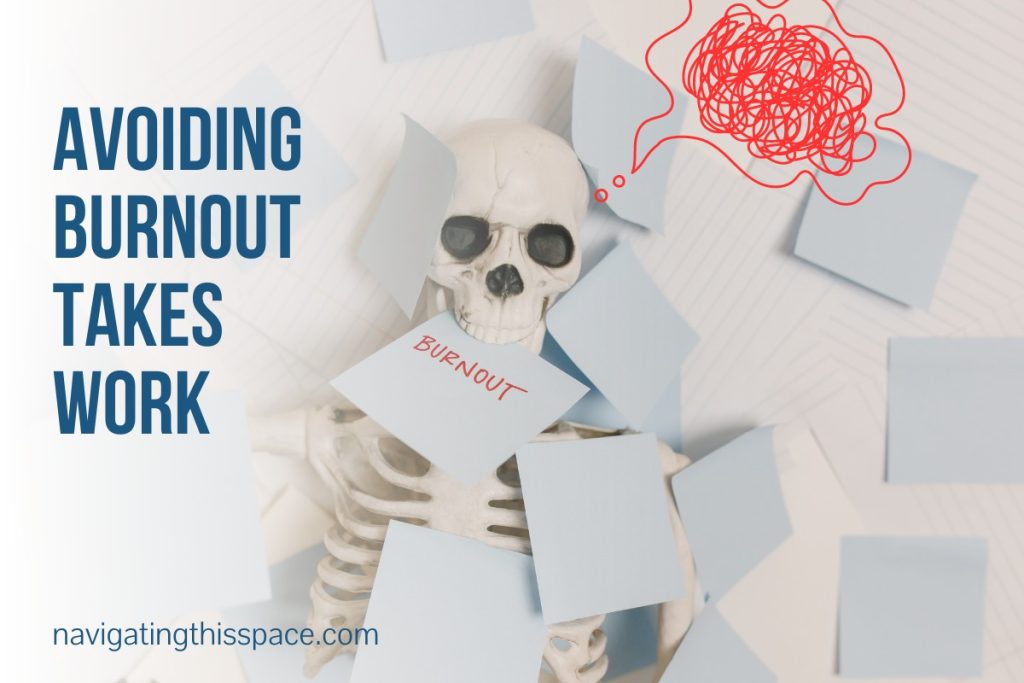
Burnout is a serious issue and it takes work to recover from it.
By implementing the tips above, you will be able to manage your stress levels, take better care of yourself, and have more energy for the things that matter in life.
Take small steps each day towards helping yourself feel better and eventually, you will be able to recognize the signs of burnout before they take a toll on your mental and physical health.
Remember to be patient, practice self-compassion, and take small steps towards a healthier, happier life.
How have you been managing your burnout? Share your tips and experiences in the comments below.
Questions You May Have
How do I know if I’m experiencing burnout?
Burnout can be difficult to spot as it often presents itself in subtle ways. Common signs of burnout include feeling extremely tired, lacking motivation, difficulty concentrating, and changes in sleep patterns. If you’ve been feeling overwhelmed and exhausted for a long time then you may be experiencing burnout.
What activities can help me with burnout?
Activities that can help with burnout include exercise, eating healthy, identifying your stress triggers, delegating tasks, taking regular breaks and time, and connecting with others. Always prioritize activities that help reduce stress and provide you with the boost of energy you need to live your life stress-free.
What are the main causes of burnout?
The main causes of burnout can vary from person to person, however, some common causes include having too much on your plate at work or in life, working long hours and not taking breaks, feeling unappreciated or undervalued, and feeling like you have no control over your life. It’s important to identify what is causing your burnout.
What should I do if I’m already experiencing burnout?
If you are already facing burnout, it’s important to take the time to address the issue and create a recovery plan. Here are some steps to take care of yourself:
1. Prioritize your physical health by eating well, getting enough sleep, and exercising regularly.
2. If needed, seek professional help from a mental health professional or counselor.
3. Create boundaries to maintain a balance between your professional and personal life.
4. Practice self-compassion and make time for self-care activities.
Pin It!
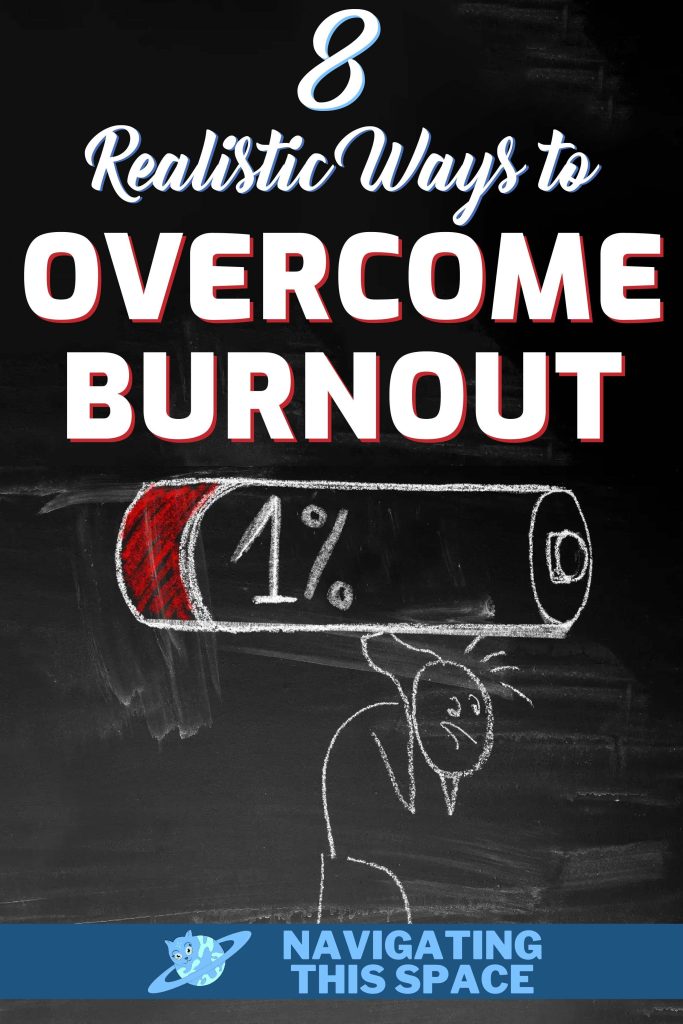
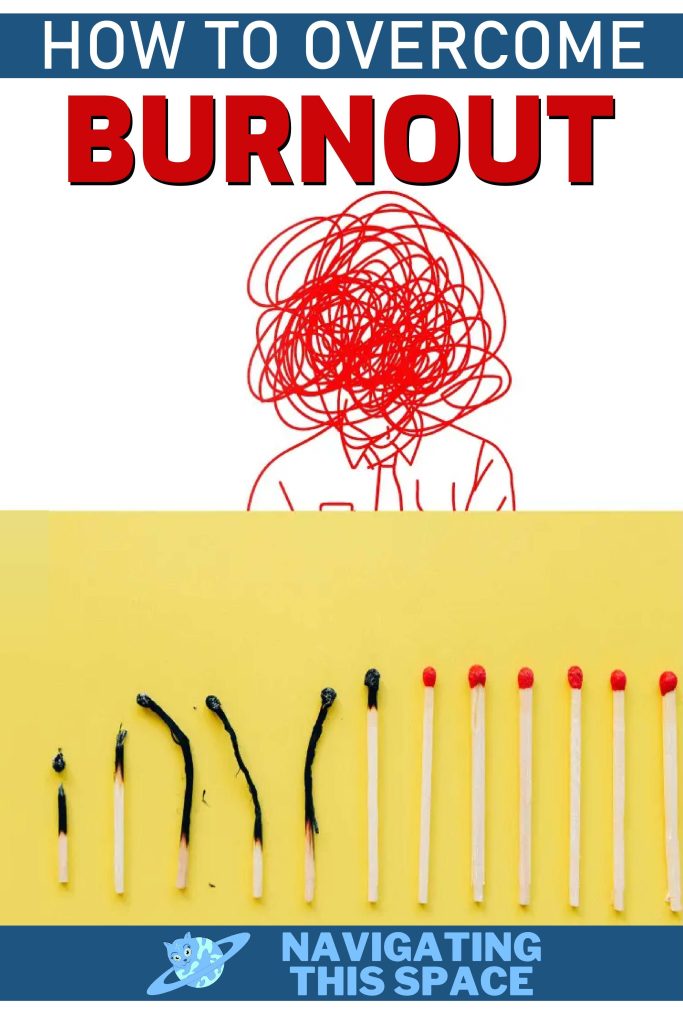




Very interesting article. that schedule looks absolutely exhausting !
It was insanely exhausting Hanna, thankfully I learned and have a better workflow now and it’s constantly being tweaked to allow more free time to do nothing.
Great post!
Thanks Kirsten
Love your insight on what burnout is and how to avoid it! I look forward to reading more articles!
Thanks Julie
I went through two burnouts and everything you mentioned under ‘how to overcome burnout’ is so true! Self-care, exercise, and nutrition go a long way, but accepting the signs is so important. Thanks so much for sharing, such an important topic.
You are very welcome Nicolle, I hope you’ll never go through another burnout.
I read that schedule and thought to myself, how did anyone keep up that schedule??
That schedule was not sustainable Tracy, that’s why it’s not my schedule anymore lol
I loved the part about identifying stress triggers. As I have gotten older I have tried hard identifying those and either accommodating or staying away from triggers. Thanks for sharing!
This is such a great post! awesome tips and ideas and your schedule was very interesting- you wake at 2am in the morning to work on projects.
I used to wake up at 2am yes, not anymore, I know better now Nisee.